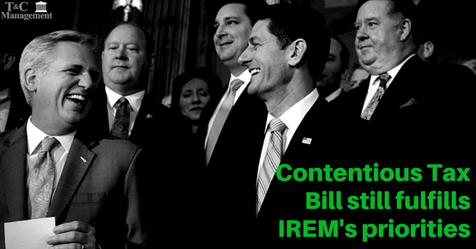
In Albuquerque, we are over 15,000 housing units short of the recommended housing supply needed, as quantified by The Urban Land Institute. Currently, there is less than one month’s supply of homes on the market for sale. Apartment inventory for sale is at an all-time low and occupancy is the highest rate it has been in many years at 96% as shown by COSTAR. Usually, we would see plenty of new housing being built. But we have a major impact on construction due to COVID-19, affecting labor and creating a shortage. Consequently, we are seeing higher lumber prices, a 40% increase over the past year, going from $600 per thousand board feet to over $1,000/ TBF. Furthermore, we will see over a 20% increase in housing costs, driving average housing prices to nearly $300,000, making it more difficult for first time home buyers, potentially denying them the opportunity altogether. Rental rates will also increase resulting in renting a 1,000 sq ft 2-bedroom apartment at $1,500 per month, requiring an income qualification of $58,000 per year. This has become the perfect storm – limited supply, raising costs, and a pandemic keeping people in place. All this is happening, and we have tenants unable or unwilling to pay rent. Undoubtedly, people have lost jobs, gotten sick, and have children at home being home schooled. They are out of options. They have also not read or understand the CDC’s ruling prohibiting evictions, thinking they do not have to pay rent when they are able to, as their pensions or incomes have not been affected. Owners are in a vice, tenants are not paying, and operational costs are high. In addition to tax costs and utilities going up, owners are faced with trying to make repairs with less or no income. Rental assistance is mired in red tape as tenants are not able to qualify, or write-off getting assistance altogether due to the cumbersome paperwork requirements. Owners are unable to liquidate or refinance due to large rental balances and affected income. It has been estimated that there is over 40 Billion dollars outstanding in rents and growing. On a local scale, our company has an 8% delinquency rate equivalent to $300,000+ in unpaid rents. The effects are already being felt by owners and residents alike – and now an onslaught of legislation assaulting real estate. All proposed bills are well-intentioned, but the unintended consequences will further cripple the real estate market by limiting supply and affecting the inflow of capital. The following are what is proposed. Full bills can be found on the state’s legislative website: HB19 - Real Estate Transfer Act, SB333 - Foreclosure and Housing Study SB338 - Domestic Violence Victim Release from Lease SB349 - Mortgage Relief Act, HB291 – Adding New Brackets to the Income Tax, HB 111 – Housing Discrimination There is a whole range of proposed legislation affecting real estate without any orchestrated approach. The affect will be catastrophic – increasing taxes, facilitating the removal of tenants while leaving owners worried that the removal could affect the standing rental contract, and a housing discrimination bill that affects all owners. HB 111 dissipates an owner’s right to decide who they want to rent to. Removal maybe considered discriminatory in some cases. Arguments are made that owners just evict tenants. Eviction costs 2 to 3 times the monthly rent when considering lost rent, unit repairs, and leasing costs. On a four-plex this could be 25% of a building’s revenue for the year. Eviction is the owner’s last resort. This perfect storm will result in less housing, not more, exacerbating the homelessness issue. We currently have over 2,000 homeless waiting for housing. Putting limits on collections, removal for non-conformity, and non-payment will force owners to increase requirements so only those with better credit scores will qualify for housing. Unintended consequences will affect all New Mexicans. Read the bills; contact your representatives to express your concerns.

To our T&C Residents and Owners, We understand the importance of the work we are doing with caring for and leasing the properties that are managed by us. With the health of our workers and tenants being of the utmost importance, we have decided to only perform emergency work orders during the spike in COVID-19 cases. What constitutes an emergency? Below is a list of what we consider emergencies and what we will be servicing from here on out until the COVID risk diminishes. Emergencies include: Fires Leaks (Water or Gas) No Power Fridge or Stove not working No Water Clogged/Leaking Toilets Break-Ins Broken Windows Heater Malfunctions (This emergency is contingent on the temperature being below 60 degrees). We know that there are other things that may require attention, but please bear with us and know that we are only making this change as a direct cause of the spike in COVID-19 cases here in New Mexico and around the country overall. If you have any additional questions, please feel free to reach out to your property manager directly or to our main office. Queridos Residentes de T&C, T&C Management entiende la importancia del trabajo que hacemos al mantener y rentar las propiedades que manejamos. La salud de nuestros empleados y residentes es lo mas importante para nosotros. Por eso es que haremos unos cambios operacionales durante este tiempo de alto riesgo del Corona Virus. Por algun tiempo, solamente atenderemos a las solocitudes de mantenimiento que se consideran emergencias. Que es lo que se considera una emergencia? Abajo encontrara una lista de las emergencias que atenderemos durante este tiempo de alto riesgo hasta que los casos del COVID-19 empiezen a bajar. Emergencias: Incendios Gotera de Agua o de Gas No Electricidad Refrigerador o Estufa que no funcione No tener agua Banos tapados Si alguien entra de fuerza a su unidad Ventanas quebradas El calentador no funciona (solo se considera emergencia si la temperatura baja de 60 grados). Sabemos que hay otras cosas que pueden requerir atencion, pero les pedimos paciencia durante estos cambios que estamos implementando en resultado al alto riesgo del virus en este momento. Si tiene alguna otra pregunta, no dude en comunicarse con su manegadora o con la oficina principal.







